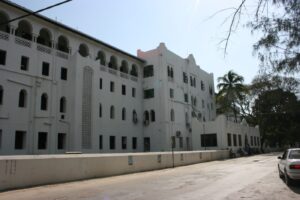Dar es Salaam. The implementation of the petroleum bulk procurement system in purchasing fuel for the country has reduced losses by 0.2 percent from the previous 5 percent, surpassing the international requirement.
The system has significantly decreased the time for ships to offload petroleum from between 40 and 90 days to just three to four days, saving substantial waiting charges.
“Through this system and the executives who track it down to the warehouses, the loss has dropped to 0.2 percent and saved the cost of between $20,000 and $80,000 that ships charged a day for waiting,” said Mr. Bruno Tarimo, the head of petroleum inspection at the Petroleum Bulk Procurement Agency (PBPA).
Speaking at the ongoing 48th Dar es Salaam International Trade Fair (DITF), which started on June 28 and will run until July 13, Mr Tarimo said the system’s success in various areas, including an increase in demand for petroleum products in neighbouring countries,.
He also mentioned that before the system was established, monthly consumption was lower, with domestic fuel usage between 60 percent and 70 percent and external usage only 30 percent.
Currently, the fuel distribution is balanced, with an equal share going to domestic use and neighbouring countries, sometimes reaching up to 55 percent.
“We continue to urge Tanzanians to learn the system so that they can understand it and be able to use it, thereby attracting more investors to the supply chain.”
This system has also enabled small companies to enter the oil import business. Initially, only multinational companies had the financial capacity to import, which led to a lack of fair competition. But now, both large and small companies compete in the tender process under the same criteria.
In a nutshell, Mr Tarimo said the system has facilitated the growth of small companies and improved revenue collection by the Tanzania Revenue Authority (TRA), adding that taxmen can now project the amount that will be collected from imported oil, making it easier to organise funding for government projects.
In July, the agency expects ten ships, including three for diesel carrying 250,000 litres, four for petrol each carrying 36,000 litres, and others for jet fuel. The loading process has already begun.
Regarding quality, Mr Tarimo added that they are collaborating with the Tanzania Bureau of Standards (TBS) to ensure that the products entering the country meet the required standards.
He added that since the agency was established, it had returned three ships that did not meet the criteria, and the supply was required to pay a fine and bring another.
This year’s 48th DITF, 353,201 visitors are expected and 11,712 temporary jobs have been created.
A participant, Ms Adelina Komba, said this year there has been a big difference; the environment has improved more compared to last year.















